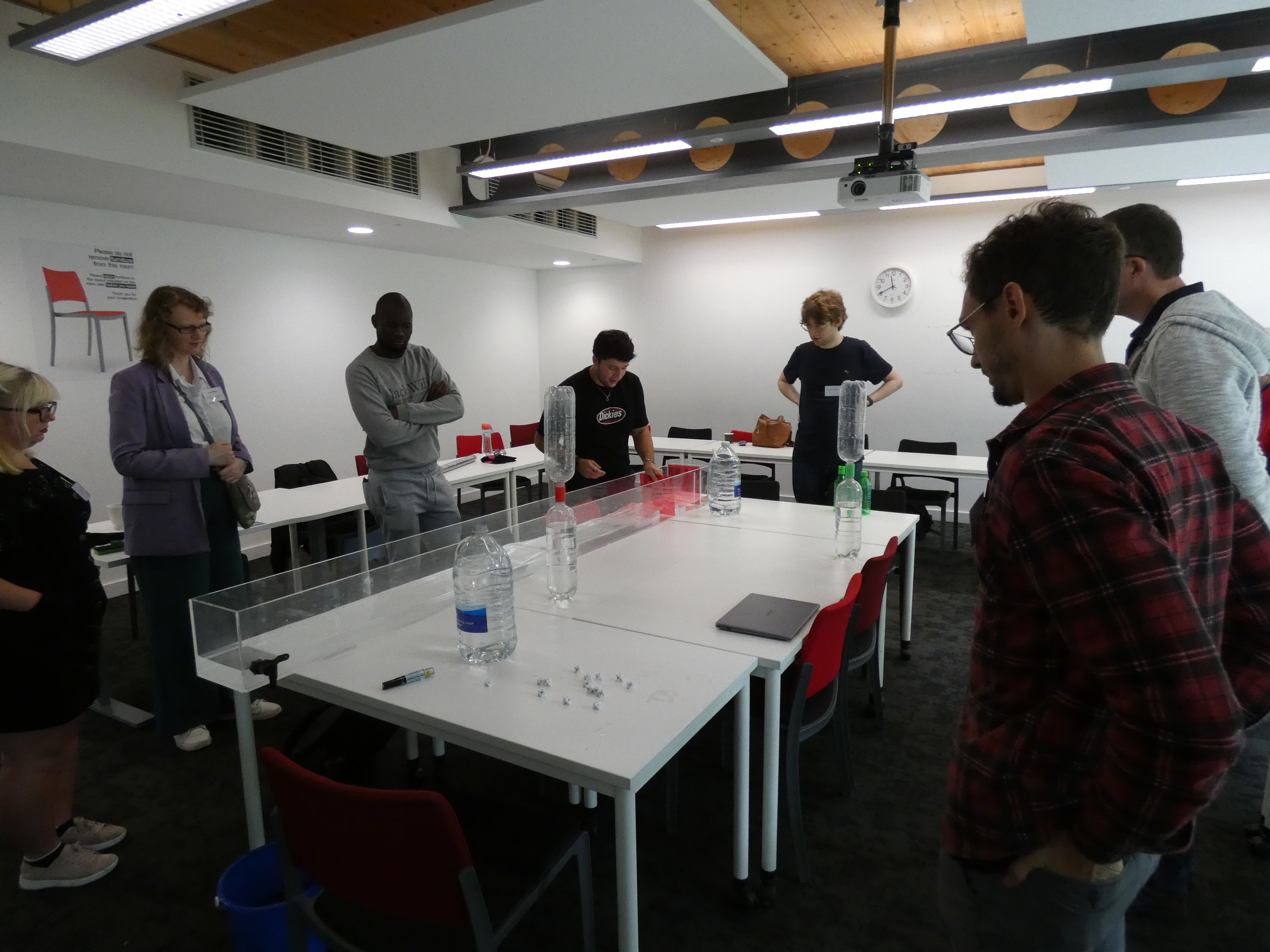On July 3rd, the Graduate Researcher College hosted the annual PG conference. Thanks to the hard work of organisers Thomas Cheale and Edoardo Peroni, the School of Mathematics, Statistics, and Actuarial Science (SMSAS) sessions were a resounding success, consisting of discussions, great talks and interactive sessions.
The day started with registration and coffee, giving everyone a chance to settle in. In the first session, we heard two fascinating talks. Edoardo Peroni gave an introduction to soliton theory, and James Bradshaw followed with an interesting talk on kink collisions, complete with videos and graphics.
Session two shifted towards interactive mathematics experiments. Morgan Reese demonstrated the theory of vortices with a water tank and home-made vortex generators made from plastic bottles. Then, Thomas Cheale led an interactive statistical experiment using randomised response techniques to estimate how many audience members didn’t like their supervisors, while keeping answers confidential. Finally, Painos Chitanga introduced the game N-pile Nim and showed how to use maths to win it.
The third session consisted of an industry panel with three former PhD students who shared their experiences and gave advice. Javier Aguilar Martin talked about moving from academia to the private sector and how to effectively leverage a PhD in industry. Lucy Barnes shared her journey working as a civil servant and starting her own company. She gave tips on managing work-life balance. Jack McKenna discussed the different paths into academia after a PhD and emphasized the growing importance of teaching.
We ended the day with a poster session featuring the work of current SMSAS students. Special thanks to Rogerio de Lemos for printing the posters. Amy Klintberg’s poster, titled “When Midnight is an Odd Number: The Mersenne Composites That Are Revealed in mod(Odd),” won the award for best poster in the division of Computing, Engineering, and Mathematical Sciences (CEMS).
The 2024 PG Conference at SMSAS was a success, thanks to Thomas Cheale and Edoardo Peroni, as well as everyone who participated. It was an opportunity to learn, share, and connect with others in our field.
